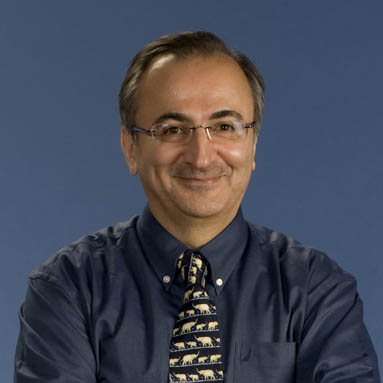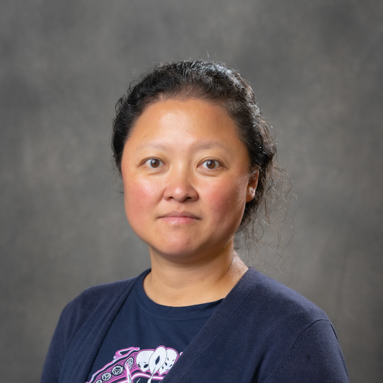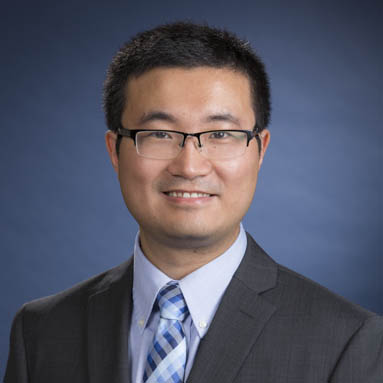The PhD in Mechanical Engineering at WPI allows you to advance your studies and contribute original research to your chosen focus. Our flexible, multidisciplinary curriculum and extensive industry connections let you pursue the most appropriate and tailored path to exceed your career goals and address the major engineering challenges of the 21st century.
Working alongside our world-renowned faculty and within a collaborative and supportive research environment, you’ll lead breakthrough research in areas like assistive technology, biomedical robots, digital manufacturing, electronics cooling, nanotechnology, holography, and medical imaging that can have life-changing results.

Curriculum
You can tailor WPI’s PhD in Mechanical Engineering to suit your professional and personal goals. After passing an admissions exam that determines your abilities in several areas, you’ll take courses or complete an independent study project in your field of interest while leading up to your dissertation research.
Our many research centers offer the input of almost 100 members across several industries and offer rich opportunities for diverse projects. The cooperative atmosphere brings innovative research prospects with the support of both WPI and industry partners.
Research for PhD in Mechanical Engineering
As a candidate pursuing a PhD in Mechanical Engineering at WPI, we don’t expect your research to simply confront obvious challenges—we want you to identify problems no one has identified before. We’ll give you the support and the facilities to do just that in several labs or within one of the department’s many industry-supported centers.

Whether your interests lean toward structures and materials or toward fluids and thermal engineering, WPI’s mechanical engineering graduate program allows you to shape your studies according to your career goals.

Faculty in WPI’s mechanical engineering department pursue research in areas that are varied, but all have an important impact on humanity.

Mechanical engineering includes studies in areas including aerospace and materials science.

Research possibilities include collaborations with local industries working on immediate healthcare needs or with NASA on future space exploration and technology.

Students and faculty work collaboratively on well-funded research projects, opening up valuable opportunities and possibilities for internships, collaborations, and potential employment.

Well-equipped facilities and accessible research labs let you focus on your research at hand.
WPI’s extensive, well-funded facilities accommodate nearly every research niche in the field. In our state-of-the-art labs, you’ll have access to the latest equipment and will foster collaborative relationships with fellow researchers across disciplines.
Faculty Profiles






Have questions?
WPI's dedicated graduate student support team can help.
Refer a Friend
Do you have a friend, colleague, or family member who might be interested in a WPI graduate program? Click below to tell them about our programs.
Elevate Your Career Potential With a Doctorate in Mechanical Engineering Now
Whether you’re already a mechanical engineer working in the field or want to expand your industry connections and exceed your personal career goals, pursuing a doctorate in mechanical engineering will set you up for success. Maybe you have questions about mechanical engineering PhD salary or sample companies who have hired our WPI graduates? Explore our career outlook for mechanical engineering where you’ll find answers to mechanical engineering PhD jobs, top companies our graduates work at like Amazon Robotics, BOSE, and even Space X, and more. Are you interested in learning more about our robust research offerings? Explore how you can make new discoveries and solve critical engineering challenges on our research page.
Forge Your Path by Earning a Master’s First
Are you a mechanical engineering professional ready to tackle critical engineering challenges and assume a leadership role in the field? Earn a master’s in mechanical engineering which will immerse you in diverse research areas for top companies like NASA, BOSE, and more. Seek new discoveries and be on the forefront of solutions to pressing challenges as you work with our world-class faculty members. From fluids engineering to energy and science or even nano and micro engineering, you’ll have the opportunity to dive into whichever area interests you most. Do you prefer a flexible online format? You can take classes when it’s most convenient for you with our master’s in mechanical engineering online.
Become an Engineering Leader with a Graduate Certificate
Are you driven by creating innovative solutions and advancing as a leader in your industry? Our mechanical engineering for technical leaders graduate certificate empowers mechanical engineers like you to be well-rounded in the field. Our grad certificate combines leadership, management, and technical coursework to deliver students a well-rounded education. Advance your career without skipping a beat with our flexible online format and work with your faculty advisor to determine a relevant plan of study that fits your career goals.
Start with a Foundation in Mechanical Engineering Studies
Mechanical engineers can focus their academic and career paths on the topics that interest them the most. At WPI, the bachelor’s degree in mechanical engineering lets you explore such diverse areas as biomechanical engineering, energy, engineering mechanics, manufacturing engineering, materials science, mechanical design, and/or robotics. Your course work in mathematics, chemistry, physics, and several engineering disciplines helps you gain a foundation while focusing on work that motivates you. And our project-based approach means your undergrad work lets you apply your knowledge to problems you’ll see in the real world. If you’re interested in gaining the fundamental ideas behind mechanical engineering, but are majoring in a different discipline, then a mechanical engineering minor is a good option. You’ll gain the knowledge you need to apply mechanical engineering principles to your area of study. This valuable perspective enriches what you are learning and helps you sharpen your critical thinking skills, too.
WPI is proud to be the recipient of not one, but two National Science Foundation Research Traineeship programs. The programs provide exceptionally talented graduate students with specialized training and funding assistance to join careers at the forefront of technology and innovation. The programs are for graduate students in research-based master's and doctoral degree programs in STEM.